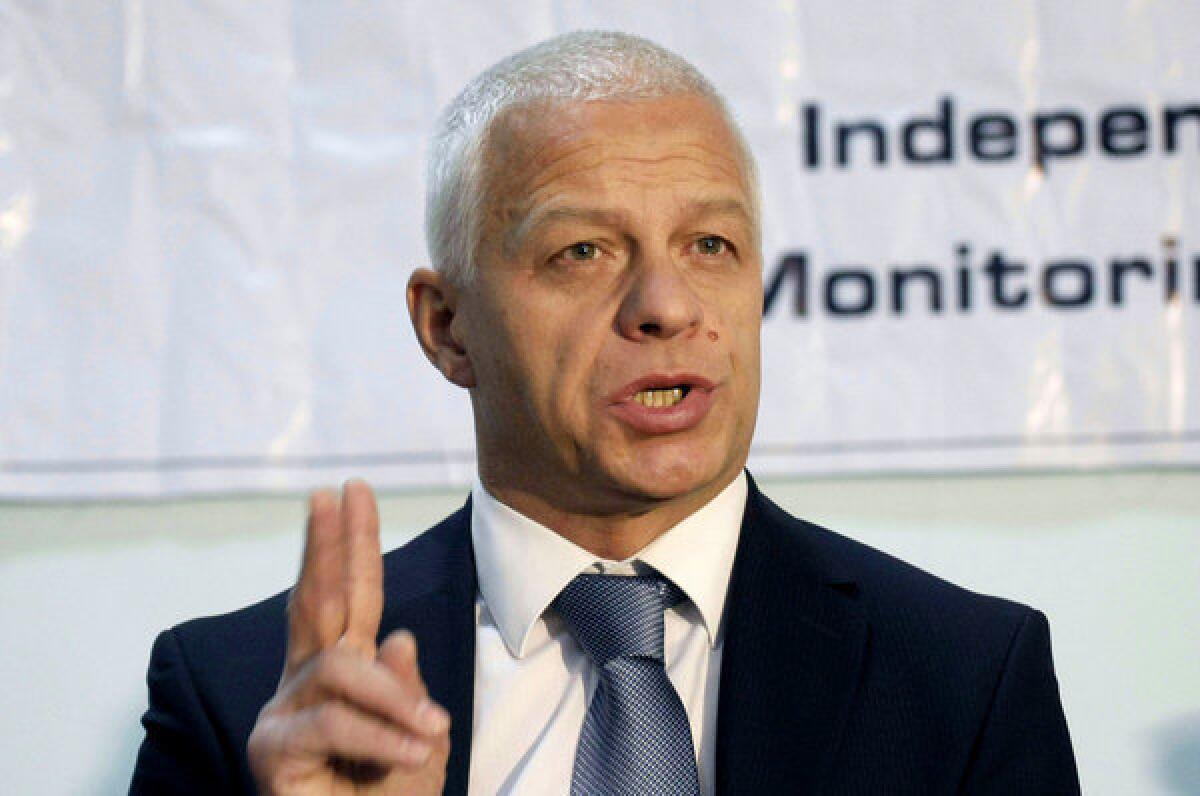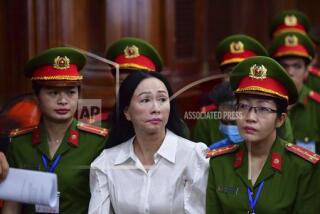Report cites extensive corruption involving Afghan bank

SAROBI, Afghanistan -- Afghanistan, notorious for institutionalized corruption, has reached breathtaking new levels of officially sanctioned theft as fresh details emerge of a massive conspiracy to loot the privately owned Kabul Bank.
An independent review released Wednesday said hundreds of millions of dollars was embezzled in a sophisticated scheme that allegedly involved close associates of President Hamid Karzai, including his brother. The review described brazen fraud driven by cronyism and nepotism, perpetrated by politically connected Afghans who stole the bank’s deposits and forced its collapse.
The fraud was abetted by weak oversight and a justice system perverted by political influence -- “the perfect environment” for fraud, a summary report said. Interference came from top officials loyal to Karzai, who the report said handpicked those to be charged in the fraud -- thus diverting prosecutors from well-connected conspirators who stole millions.
“Kabul Bank was nothing but a fraud perpetuated against depositors, and ultimately all Afghans,” said the report.
The inquiry outlined in the report was conducted by an independent commission in Afghanistan made up of Afghan and international finance experts. It was financed by international donors.
Kabul Bank, which collapsed in 2010 and went into receivership in April 2011, was looted of $935 million in what the report said was one of the world’s largest bank failures, representing nearly 6% of Afghanistan’s gross domestic product. The fraud undermined already shaky confidence in the country’s nascent political, justice and banking systems as a multibillion-dollar U.S. nation-building effort struggled to create viable Afghan institutions.
More than 92% of Kabul Bank’s assets were reserved for 19 politically powerful individuals or companies, for a total value of $861 million, the 87-page report said.
The conspirators kept two sets of books -- a phony set for regulators and another set that kept track of embezzled funds. They created phony companies legitimized by more than 100 fake stamps of authenticity. The fraud was legitimized by corrupt accounting firms, “seemingly established for the sole purpose of producing fraudulent documents to support loan files,” the report said.
Some of the hundreds of millions in looted cash was smuggled out of the country in airline food trays of the now-defunct Pamir Airways, according to the report. The airline was established through loans from Kabul Bank.
Government authorities knew of the airline smuggling scheme in 2009 but did not pursue a serious investigation, the report said. The attorney general’s office within the Karzai government did not mount a credible investigation into the fraud until April 2011 -- seven months after panicked bank customers stampeded branches to withdraw their money in response to reports of fraud.
Even then, the report said, “the final decision about who to indict was made at the political level.” Prosecutors from the attorney general’s office were summoned by senior presidential aides and told to make the indictments “conform to decisions made.”
Much of the money ended up in the United Arab Emirates. Other assets were stashed in more than 20 countries, including Switzerland, Britain, South Korea, Russia, Turkey, Latvia and the United States. Some cash was spent to build lavish villas in Dubai.
Ultimately, the bank had to be bailed out by Afghanistan’s central bank, at a cost of at least $825 million.
“This is the money from the budget of Afghanistan, from the pockets of the Afghan people,” Drago Kos, chairman of the Independent Joint Anti-Corruption Monitoring and Evaluation Committee, said Wednesday at a news conference in Kabul.
The committee’s report said the fraud has forced the Afghan government to divert funds needed for education, healthcare and infrastructure in the desperately poor country: “Every citizen in Afghanistan will bear the cost of the hundreds of millions of dollars required to secure deposits and the tens of millions of dollars required to deal with the aftermath.”
One senior official who attempted to get to the bottom of the fraud -- Abdul Qadir Fitrat, former chairman of the central bank of Afghanistan -- was later charged by the Karzai government with failing to report the scheme. Fitrat fled to the U.S. in June 2011 after publicly identifying two men he said had profited handsomely from the fraud: Karzai’s brother, Mahmood Karzai, and Haseen Fahim, the brother of Afghanistan’s first vice president, the powerful former warlord Mohammed Qasim Fahim.
Neither man has been charged in the case, and both have denied committing crimes.
A corruption trial is underway in Kabul in which more than 20 people are charged with orchestrating the fraud. They include Kabul Bank’s former chairman, who is a world-renowned poker player, and the bank’s former chief executive.
But several of those charged are current or former officials with the nation’s central bank who tried to investigate the fraud but were stymied by interference from senior members of the Karzai government. The report cited no evidence that these officials played any role in the embezzlement scheme.
At least 30 officials at the central bank were “questionably arrested and detained” by the Karzai government, the report said.
At the same time, the report noted, prosecutors have failed to indict accounting firms that created false documents; airline employees who smuggled stolen cash; and shareholders who received no-interest loans with no apparent intention of repaying them.
By August, banking authorities had recovered $128 million in cash from the repayment or sale of assets, the report said. They have taken control of other assets with a book value of $190 million, though the sale of those assets will probably generate only about $100 million.
Worse, the report concluded, the true story of the fraud may never be known.
“Nor has there been a comprehensive effort to identify changes that are required to ensure that such an event never happens again,” the report said, “and to ensure that those responsible for the crisis face real consequences.”
ALSO:
Car bombs in Damascus kill at least 34 people
Top Spanish real estate lender lays off 6,000 employees
Egyptian court vows to not be “blackmailed” by President Morsi
More to Read
Start your day right
Sign up for Essential California for news, features and recommendations from the L.A. Times and beyond in your inbox six days a week.
You may occasionally receive promotional content from the Los Angeles Times.







